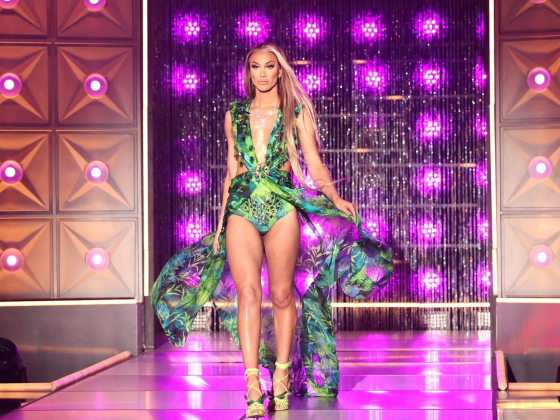
RuPaul’s Drag Race was a silly, sassy fashion-driven frolic of a TV show when it started in 2009. But somewhere along the way, it became a lot more, presenting a new paradigm for self-expression, gender identity and human acceptance. Today it’s a bonafide cultural phenomenon. RuPaul Andre Charles is more than a gorgeous, funny Black man in fierce frocks – he’s an inspiration, a fashion icon, a business person, and a cultural visionary who continues to elevate not just the LGBTQ+ community, but encourages support and acceptance for all. While out transgender queens were not always a part of the show, that’s changed in the past couple years and this season, two Drag Race L.A. contestants identifying as trans have made us proud.
As the 14th season is underway, Los Angeles’ own Kerri Colby remains a top contender. Colby, whose real name is Elyse Alessandra Anderson, is actually one of four transgender participants seen on the show this time out. She and fellow L.A. performer Kornbread The Snack” Jete (aka Demoria Elise) both started the competition openly trans, with two others on the show coming out since it aired. Jasmine Kennedie shared her transgender identity just last week during a heartfelt episode of the Drag Race’s after-show Untucked, and Bosco, aka Seattle’s Demon Queen” (real name Chris Constantino) did so just before that on Instragram, citing Colby and Kornbread as inspiration for revealing her true self. This season also had its first straight cisgender male queen, Maddy Morphosis, eliminated in episode 6.
With conversations surrounding trans issues, as well as the differences in gender and sexual preference, pronouns and presentation, each more prominent than ever, Drag Race is more relevant than ever as a platform for understanding how others live their truth. It’s still entertaining as hell, too, with dazzling runway fashion and hilarious challenges. LA Weekly had the opportunity to chat with two ground-breaking L.A. queens a few weeks ago (a third L.A. contestant, June Jumbalaya, was eliminated in episode 3 of this season). We spoke just before Jete had to leave the competition due to an ankle injury (and even though the badass babe is gone, she is not forgotten). Our colorful conversation provided an insider perspective on what it’s like to be on one of the most popular reality shows in herstory,” and a lot more.
Enjoy an edited excerpt Q&A (as seen in this week’s Black History Month-themed print edition) and watch the full Zoom chat –in which the ladies discuss fashion and the upcoming RuPaul’s Drag Con (scheduled for May 13-15)– below.
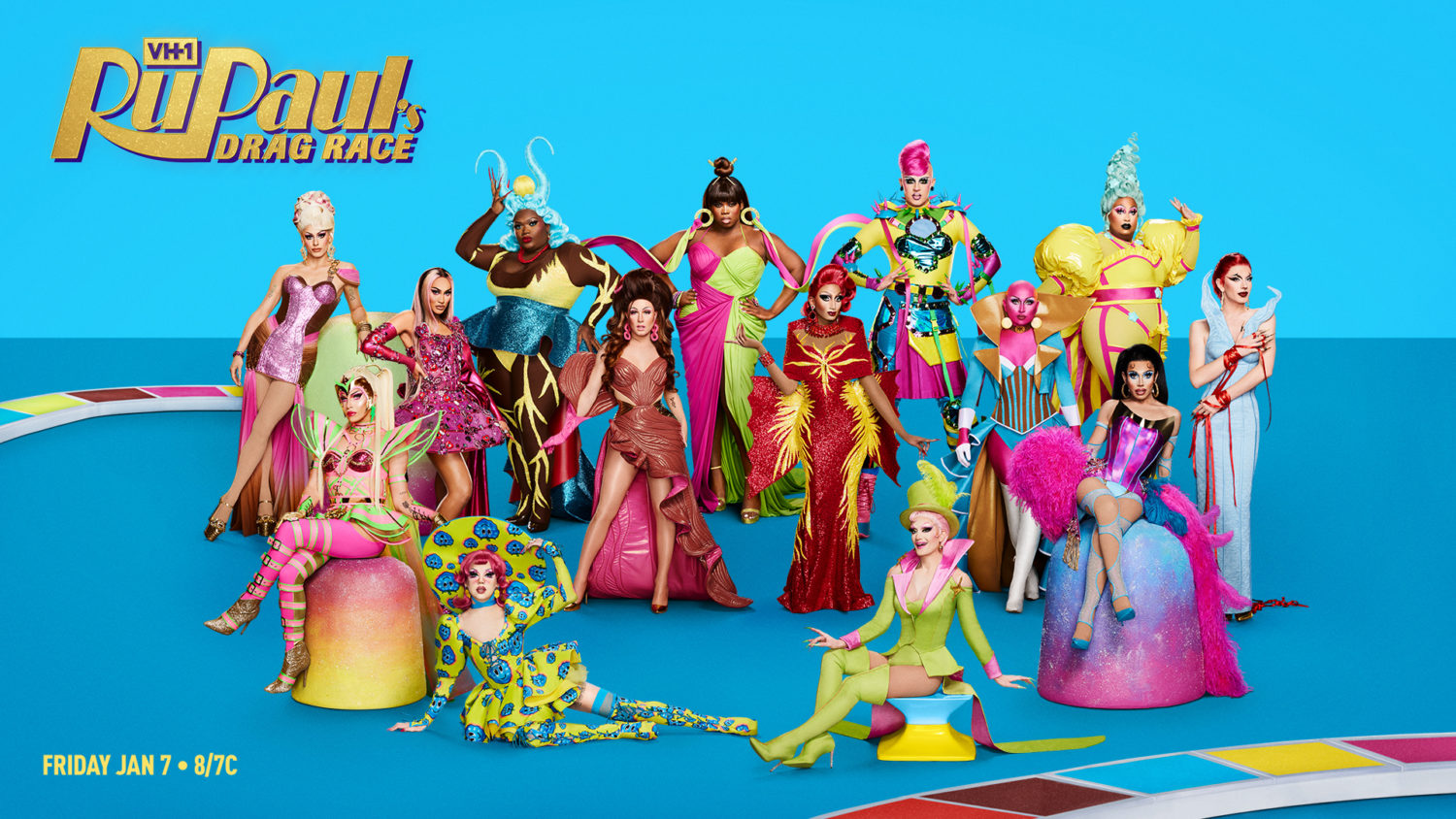
(Courtesy VH1)
LA WEEKLY: First of all, it’s really exciting to see L.A. being represented by two, actually three, wonderful queens. And you are both doing really well. So I wanted to hear from each of you first off, just to find out what it’s meant to even just be a part of RuPaul’s Drag Race?
KERRI COLBY: It’s literally been a dream. For me personally, it’s something that I used to dream about a lot when I was younger. I just was like, ‘Oh, my God, what a fantasy it would be, to be on the show.’ And it’s amazing how life works, because things you never expect would happen, can happen when you just kind of follow the path and release, then let God help you create the manifestations in reality. It’s so amazing.
I know a lot of Queens in past seasons try out and it doesn’t happen that season. So they try out again and again, then get on the show next time or the time after that. Have you tried out a few times prior to this season?
KC: Yeah, so this was my second audition. I don’t even know if my first one went through. And honestly, if it did, I apologize to anyone who had to see that. Because it was a mess. People say if this is something you want, you have to give it your everything. And with this last audition not only was I just much more myself, but I also was in a better headspace and I came prepared. And when I was done with it, I was like, ‘no, there’s no way they’re not gonna put me on,’ like, ‘you can’t say no to this.’
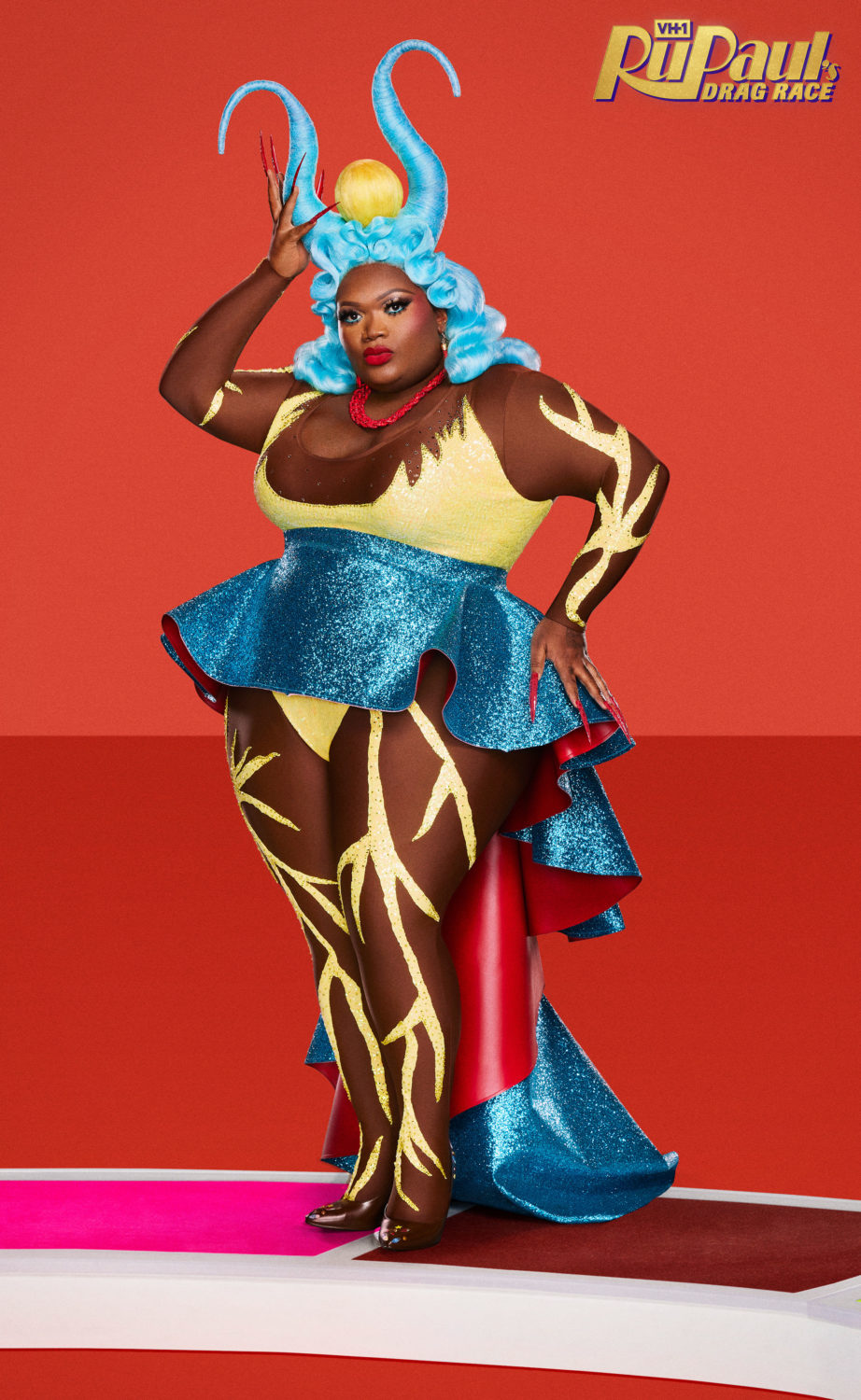
RuPaul’s Drag Race L.A. contestant Kornbread “the Snack” Jete. (Courtesy VH1)
I love it! Kornbread, what about you? What does it mean to be on the show? Tell me a little bit about your history. Did you watch the show before?
KORNBREAD JETE: I’m a product of RuPaul’s Drag Race. I’d seen drag, obviously, you know, in movies and things, but you never think that’s the place you want to be. I used to sneak and watch Drag Race, and I would delete it off of the queue so nobody knew what I was watching. So getting the opportunity to actually be on it changes your life tremendously. Even getting the first call from them and them considering you, it changes your spirit and your mindset on life. And it just makes you a lot happier to know that your work is being looked at, by a lot of people, especially people that you admire. This was my first time auditioning. I told myself I wouldn’t go to the show until I figured out who I was, not knowing that going on the show I would actually realize that I didn’t know shit about myself. And I know more about myself now.
That makes total sense. What about sharing yourself? We don’t want to do any spoilers or talk about what’s not been shown, but just in a general sense… Kornbread, you’ve revealed a lot about your family history. A big, consistent component of the show is learning about each contestant and their background and their struggles with family. I’ll ask both of you, but Kornbread, since we’re talking about it, did you find that to be a challenge?
KJ: Absolutely not. Everyone around me can tell you, I am very transparent about who I am. Going to the show, knowing how things work, you have to make yourself connect with America or the world within an hour’s time, in a room full of 13 other super talented people who also have stories, who also have journeys. My thing was going on this show, I was going to be as real and as transparent as I could possibly be. You’re going to get my loud, crazy stuff, and you’re going to get these mood swings that I have as well. And if I don’t like something, I’m going to tell you that I don’t like something… I wasn’t going to fear what the public would think or fear what the fans would say. If you like me, you like me, if you don’t, you don’t. That’s not my problem. So my mindset was just go in here and be as transparent as possible because you never know who you can speak to with just your story. And there was also a moment of realizing my family and things – when you try to express yourself to family or even to friends, there’s always a stopping point with them trying to give their opinion. When it’s not opinion-based, it’s just you trying to express yourself. So I knew going on Drag Race, there was no way they could interrupt what I had to say. And it was the best way to do it. Did I think [speaking about family turmoil] was going to happen that early? Absolutely not.
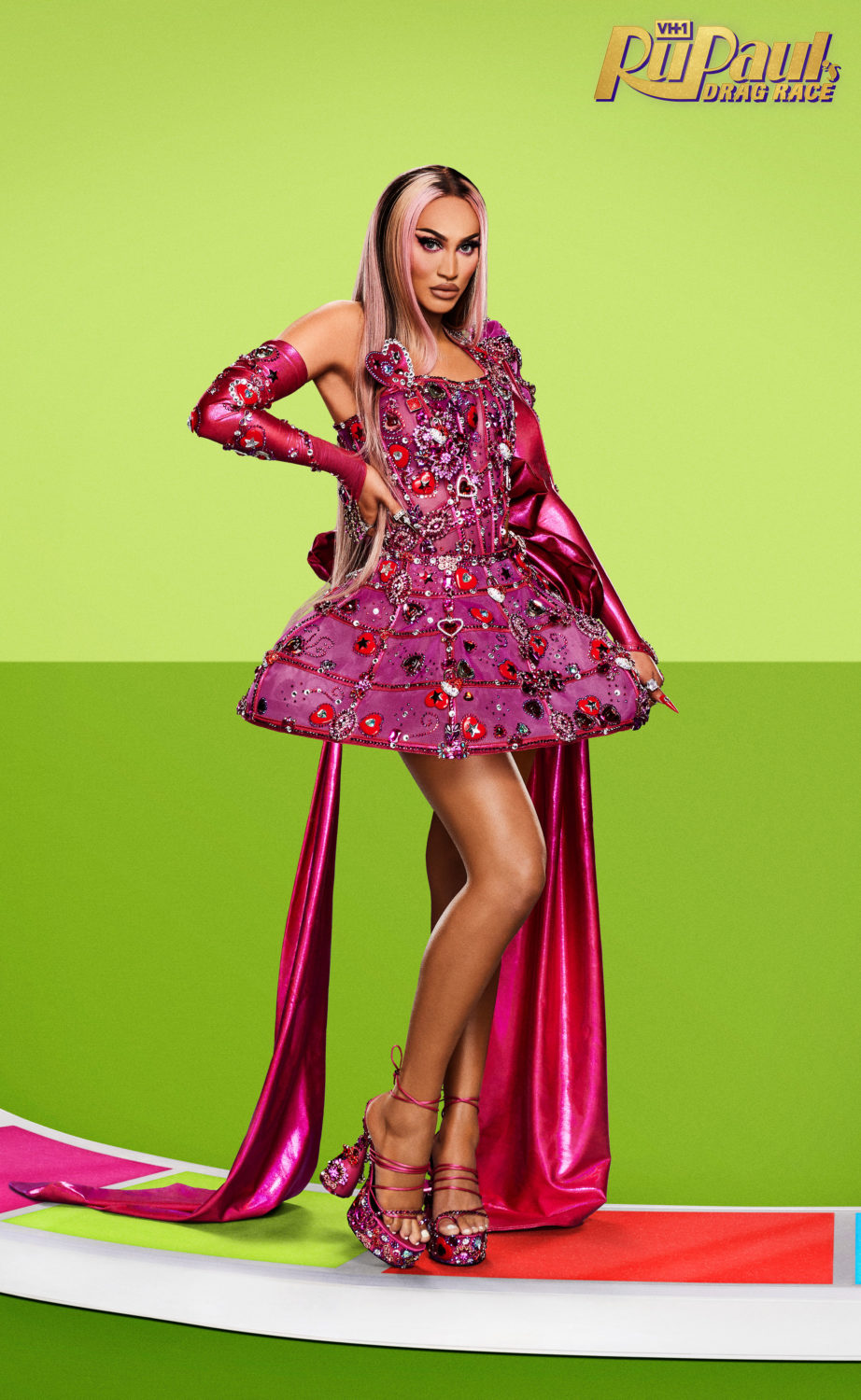
RuPaul’s Drag Race L.A. contestant Kerri Colby. (Courtesy VH1)
Kerri, what do you have to say about going in knowing you’re going to be revealing a lot about yourself and your story, and being vulnerable in that way?
KC: Honestly, Kornbread is right on the money. It really is something that, at least for me, I think some girls may not prepare for. But if you’re in that headspace where you’re going on the show to win, and if you have that mindset of like, ‘I want to be the best I can be, I want to do the best I can do, I want to really excel,’ you have to prepare yourself to share 100% of who you are. I feel like part of the journey is living it, the other part is expressing it. And then the final part is getting able to share that and see what people perceive from it. So that’s kind of like your plot, your climax and your closure. I was very prepared for that. But what I don’t think I was prepared for was how real it was. Because it’s one thing to say something and to share something but for me, there’s a whole lot in my life story that people probably wouldn’t expect. Sharing wasn’t the hard part. But the part that hit me was when I was sharing, I was almost reminded of what I’ve gone through and how life itself not only affects you, but people around you.
You both really connect on screen. What about being prepared for drama? As viewers, we enjoy watching that. The little disagreements and that kind of thing. Is that something either of you thought of, like, ‘Oh, I’m gonna try to be nice, or like, no, I’m here to win.’ What were your mindsets in terms of getting along with the other queens?
KJ: I’m an extremely nice person. I’m an extremely giving person. If I disagree with something, I want to speak about disagreeing with something. It’s not necessarily going in thinking ‘oh, I’m going to be nice, because you’re going in with that mindset, you’re not going to give your authentic self.’ You have to be your normal self. And if something makes you upset, or if something even makes you happy, you have a natural reaction.
I don’t even think situations that I had on the show were necessarily drama. It’s just disagreements between people. Not everybody’s gonna have the same opinion and the same mindset or the same agreement. So, for me, it wasn’t drama. On the show it’s just two people having a conversation with heightened personalities who have two different mindsets. We come from different worlds. And, of course, the world likes to see drama, they’re gonna make what they make of it, but at the same time, and it ain’t no damn drama. It’s called being a human being. And there’s not one human being out there that can say they have not gotten into it with somebody before about a disagreement. Plain and simple.
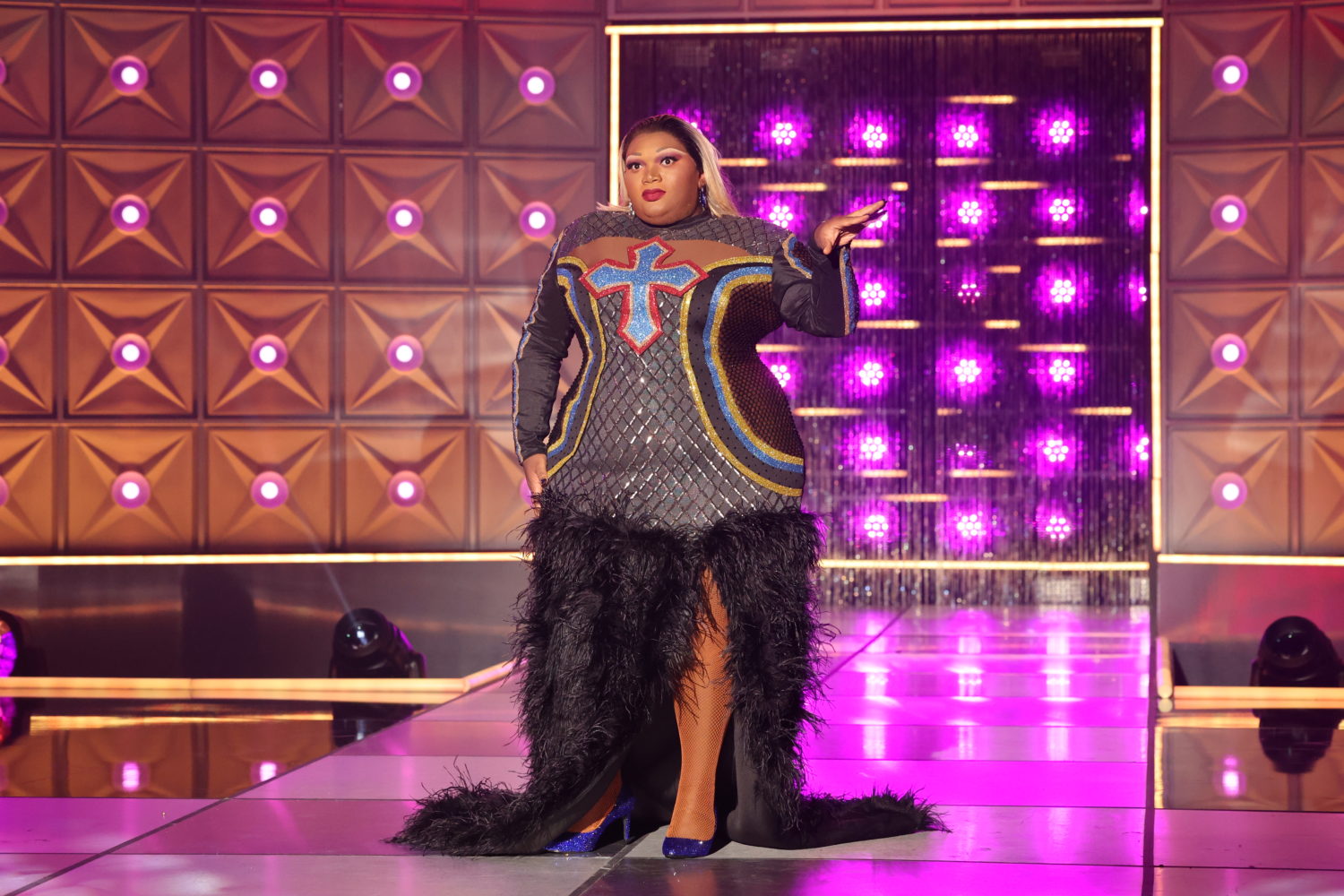
Kornbread on the runway. (Courtesy VH1)
Let’s talk about representation. Obviously, Drag Race has been a boundary-breaker for representation of drag in the queer community and for people of color. Also for representing different parts of the country. More recently, it’s been a platform for trans performers. As I mentioned earlier, you representing Los Angeles brings a sense of pride for a lot of us. What do you think about that?
KC: It’s emotional for me. There’s a lot in this season that was so eye-opening about the power of representation, and the representation of just authentically living in your truth. For Kornbread and me, we represent not only being people of color, not only being you know, in entertainment, and representing the queer mood, but we also get to bring and exhibit our trans-ness on the show. And for me, that is an amazing opportunity. It took me years to even comprehend being able to be trans because it was a lot for me to get to. For us to have not just one but two beautiful people who are sharing that story… we are giving you all of the colors of the rainbow. We are giving you all of the shapes on the block, if you will. We are showing you that there is so much to being who we are and what we are and authentically living our truth. And I think that the show really is doing such an amazing job of showcasing that. And I hope that that really brings people out of their box, as well as encourages people who might be seeing it and struggling or going through it a little bit, to be like, ‘Oh my god, there are people like me, there are voices like me, I am valid. I am welcome. And I am going to be able to thrive because if homegirl can do it. I can do it. Period.’
KJ: On the first episode of our season, a Black trans woman won the mini challenge, and an African American trans woman won the maxi challenge. But also, L.A. representation was phenomenal, not just because of Kerri and I, but also due to June Jambalaya who needs as much credit and I personally feel should be having this conversation, because June is Los Angeles, too, and she won her lip sync. And that was the first time literally, an African American person won the mini challenge, the maxi challenge, and one of the lip syncs, and also all three of us are from Los Angeles. The representation is there!
RuPaul’s Drag Race Season 14 airs on VH1.
Advertising disclosure: We may receive compensation for some of the links in our stories. Thank you for supporting LA Weekly and our advertisers.